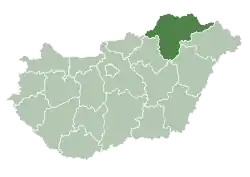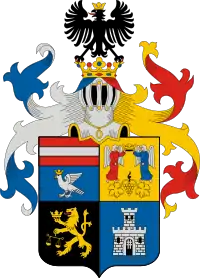Aggtelek
Aggtelek (meaning "Old plot" in Hungarian) is a village in the county of Borsod-Abaúj-Zemplén, Hungary. It is known for the vast stalactite caverns[1] of the nearby Baradla-Domica cave system, part of the UNESCO World Heritage Site of Aggtelek and Slovak Karst.
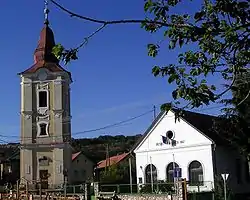
Aggtelek | |
|---|---|
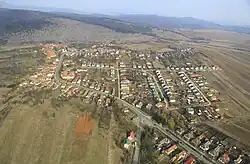 Aerial view | |
 Coat of arms | |
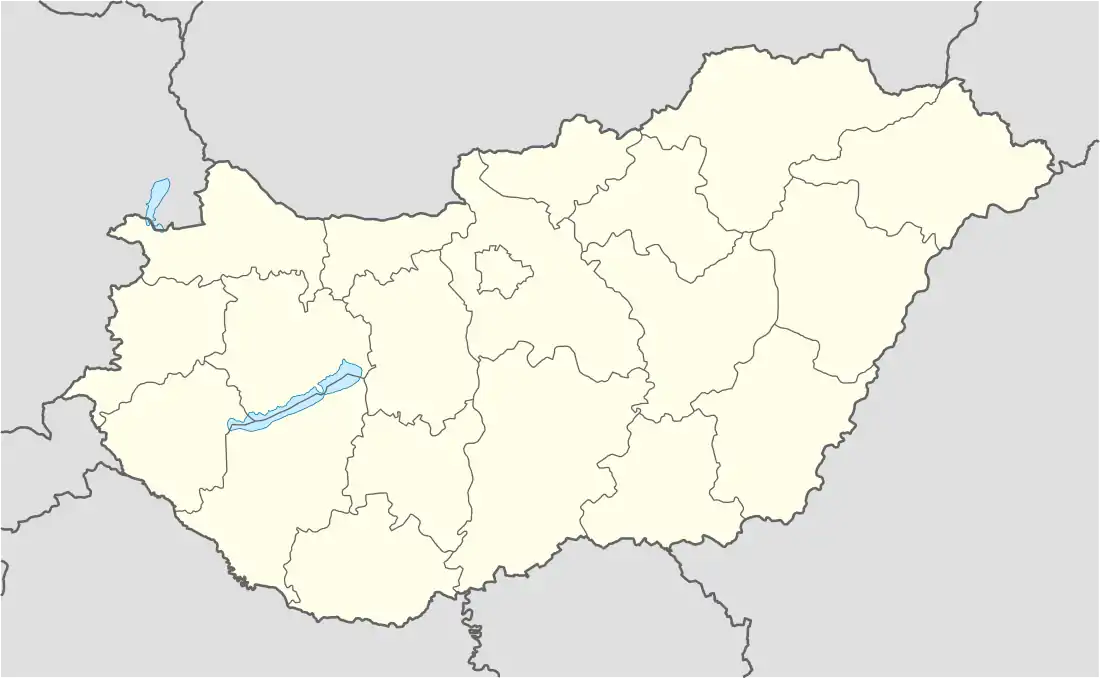 Aggtelek Location of Aggtelek | |
| Coordinates: 48.46666°N 20.50165°E | |
| Country | |
| County | Borsod-Abaúj-Zemplén |
| Area | |
| • Total | 43.81 km2 (16.92 sq mi) |
| Population (2001) | |
| • Total | 628 |
| • Density | 14.33/km2 (37.1/sq mi) |
| Time zone | UTC+1 (CET) |
| • Summer (DST) | UTC+2 (CEST) |
| Postal code | 3759 |
| Area code | 48 |
| Website | https://aggtelek.asp.lgov.hu/ |
Location
Aggtelek is located 50 km (31 mi) northwest of the county seat of Miskolc, near the Slovakian border.
History
Aggtelek is known to have been first identified in 1295, when it was called Ogogteluk. Following the Mongol invasion of Hungary during the 13th century, it remained deserted for many years.
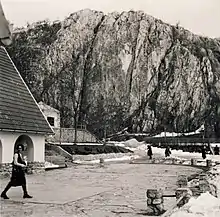
In 1858, a fire destroyed the village. During World War II, the Eastern Front passed close by, causing further damage.
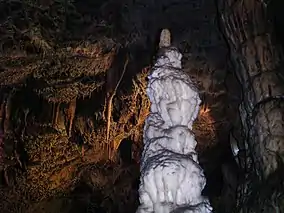
A few Jews lived in the village and there is a Jewish cemetery where two gravestones and a memorial plaque remain.[2] Jewish residents of the village were murdered in the Holocaust and commemorated in a monument in Ózd.[3]
Aggtelek National Park
The Long Tour of Baradla Cave is a 7-kilometer walking tour along the main section of the stalactite cave; shorter tours are available for unscheduled tourist visits in various parts of the cave system. The entire cave is nearly 24 kilometers long, of which 5.6 kilometers go under Slovakia. The average height of the cave is 8 meters and the average width 10 meters. The cavern called the Giants' Hall is 125 meters long, 55 meters wide and 30 meters high, making the cavern one of the most spectacular tourist attractions in the world - even though it is one of the least known and least visited.
Picture gallery
References
- Wood, James, ed. (1907). . The Nuttall Encyclopædia. London and New York: Frederick Warne.
- The Jewish cemetery in the village
- The memorial to Ózd and Surrounding Communities in the Avas Hill Cemetery
External links
- UNESCO WHC listing
- Hungarian Tourism Office listing Archived 2006-04-26 at the Wayback Machine
- Official site of the Aggtelek National Park
- Aerial photographs




